Water is the essence of life, and its quality directly impacts our health and wellbeing. With increasing pollution and contamination, the need for effective water purification systems has never been more critical. Among the various filtration technologies available, activated carbon filters have emerged as a reliable and efficient solution. This guide aims to provide a comprehensive understanding of these extraordinary filters and their role in ensuring water safety.
In today’s world, water pollution has become a significant concern. From industrial waste to agricultural runoff, numerous pollutants can contaminate our water sources, making the water unsafe for consumption. Consuming contaminated water can lead to a variety of health issues, ranging from minor illnesses like diarrhea to severe diseases like cholera and typhoid. Therefore, ensuring the safety of the water we consume is of utmost importance.

Over the years, several water purification technologies have been developed to tackle the issue of water contamination. These include distillation, reverse osmosis, UV purification, and more. However, one technology that stands out for its efficiency and versatility is activated carbon filtration. Activated carbon filters are widely used in water purification systems due to their ability to remove a wide range of contaminants from water. They not only improve the taste and odor of water but also enhance its safety by removing harmful substances.
This guide is designed to provide you with a thorough understanding of activated carbon filters. We will delve into what these filters are, how they work, the different types available, and the contaminants they can remove. By the end of this guide, you will have a comprehensive understanding of activated carbon filters and their role in water purification.
Understanding Activated Carbon Filters
Activated carbon filters, also known as activated charcoal filters, are unique in their filtration capabilities. Unlike traditional filters, they consist of small, porous sponges or black beads that have been processed to enhance their ability to trap impurities. The activation process increases the carbon’s surface area, opening up more pores to absorb and trap a wider range of contaminants. This makes activated carbon a highly effective filter medium.
Activated carbon is a form of carbon that has been processed to have small, low-volume pores. These pores increase the surface area available for chemical reactions and adsorption, a process where certain particles are attracted to activated carbon and bond with it. The large surface area and high degree of microporosity make activated carbon an excellent adsorbent material, allowing it to trap and remove a wide range of contaminants from water.
Activated carbon filters are made by treating carbon with oxygen, which opens up millions of tiny pores on the carbon’s surface. These pores act like a sponge and can absorb a wide variety of pollutants from water. The activated carbon filter works by trapping these pollutants in its pore structure, effectively removing them from the water.
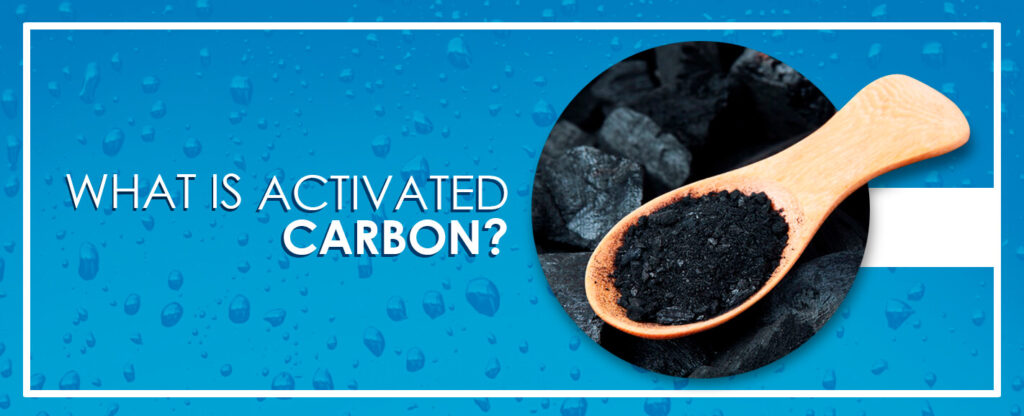
The effectiveness of an activated carbon filter depends on several factors, including the amount of activated carbon in the filter, the flow rate of water, and the type and concentration of contaminants in the water. The more activated carbon the filter contains, the more contaminants it can remove. Similarly, a slower flow rate allows the water more contact time with the carbon, which can enhance the filter’s effectiveness.
Activated carbon filters are widely used in various applications, including drinking water purification, wastewater treatment, air purification, and food and beverage processing. They are also used in medical applications and for removing volatile organic compounds (VOCs) from the air.
In the next section, we will delve into the different types of activated carbon filters and how they compare in terms of their filtration capabilities.
Types of Activated Carbon Filters
Activated carbon filters come in two primary forms: Granular Activated Charcoal (GAC) and Carbon Block Filters. Each type has its unique characteristics and applications, making them suitable for different water purification needs.
GAC filters contain loose, millimeter-sized granules of activated carbon. The granular form of the carbon allows water to flow through the filter more freely, reducing the pressure drop across the filter. This makes GAC filters ideal for applications where high flow rates are required. However, the loose structure of the granules can lead to channeling, where water bypasses the carbon and reduces the filter’s effectiveness.
GAC filters are versatile and can be used in a variety of applications. They are commonly used in point-of-entry (POE) systems to treat all the water entering a home or facility. They are also used in point-of-use (POU) systems like countertop or under-sink filters to treat water at a specific faucet. GAC filters are effective at removing chlorine, taste and odor, and organic compounds from water.
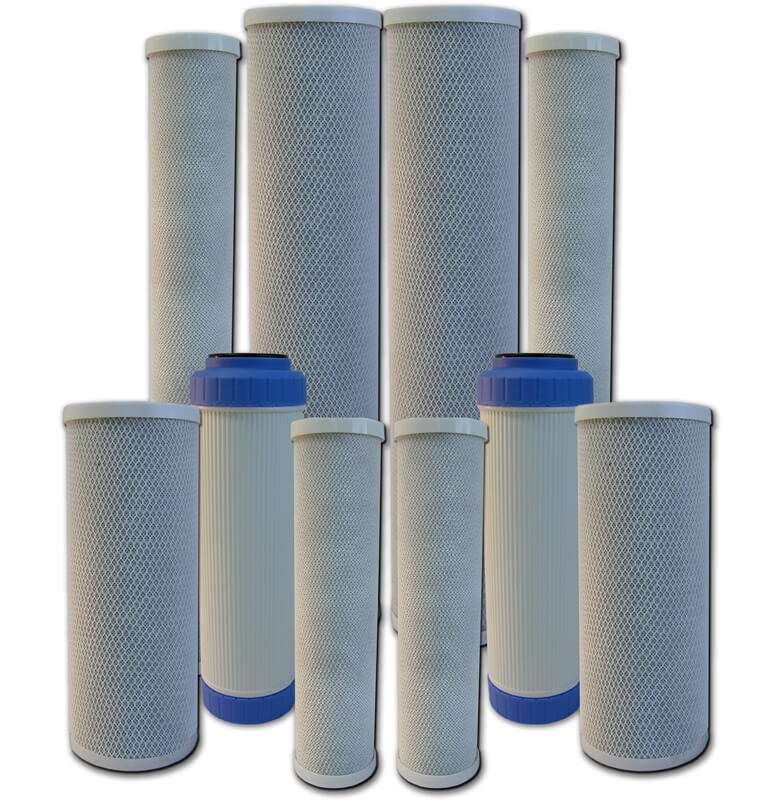
On the other hand, Carbon Block Filters are made from finely ground activated carbon particles that are compressed into a solid block. This compact structure provides a higher density of carbon and a smaller pore size, which increases the contact time between water and carbon, enhancing the filter’s contaminant removal efficiency.
Carbon block filters are highly effective at removing a wide range of contaminants, including chlorine, taste and odor, organic compounds, and certain chemicals and pesticides. They can also remove particulates and cysts from water, which GAC filters cannot. However, due to their compact structure, carbon block filters may have a lower flow rate than GAC filters.
Choosing between a GAC filter and a carbon block filter depends on your specific water purification needs. If you need a filter for a high-flow application or for removing chlorine, taste, and odor, a GAC filter may be the best choice. If you need a filter for a low-flow application or for removing a wide range of contaminants, a carbon block filter may be more suitable.
The Science Behind Activated Carbon Filtration
The effectiveness of activated carbon filters lies in the process of adsorption. Unlike absorption, where substances are taken up into the interior of a material, adsorption involves substances adhering to the surface of a material. The activated carbon acts like a sponge, absorbing contaminants in the water. The dissolved impurities in the liquid move to the areas with the strongest attractive forces, where they are absorbed onto the carbon surface. This process ensures maximum removal of pollutants, enhancing the quality of the filtered water.
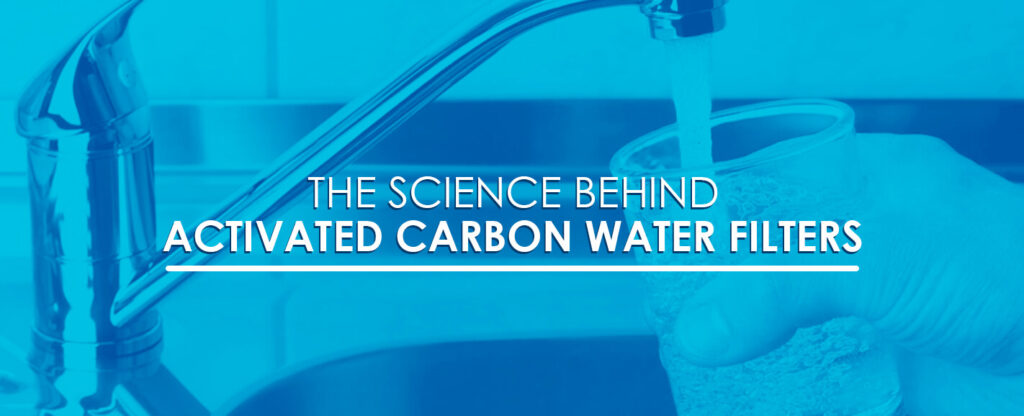
The adsorption process in activated carbon filters is primarily due to Van der Waals forces, although other forces such as electrostatic forces can also play a role. When water passes through the filter, the contaminants in the water are attracted to the carbon particles. The large surface area of the activated carbon provides numerous sites for the contaminants to adhere to, effectively removing them from the water.
The effectiveness of the adsorption process depends on several factors, including the size and concentration of the contaminants, the temperature and pH of the water, and the contact time between the water and the carbon. By optimizing these factors, activated carbon filters can effectively remove a wide range of contaminants from water, improving its taste, odor, and safety.
In the next section, we will explore the various contaminants that activated carbon filters can remove and how they contribute to improving water quality.
What Contaminants Can Activated Carbon Filters Remove?
Activated carbon filters are excellent at removing a wide range of contaminants from water. This includes chemicals, gases, and physical impurities. According to NSF International and the Environmental Protection Agency (USA), activated charcoal filters can remove 60 to 80 chemicals from water and reduce 30 more. They also moderately reduce 22 other contaminants. This includes harmful substances like PFOS, pharmaceutical residues, phosphates, chlorine, and many more.
Activated carbon filters are particularly effective at removing organic compounds that can affect the taste and odor of water. These include substances like chlorine, which is commonly used as a disinfectant in municipal water treatment, and naturally occurring organic matter that can give water an unpleasant taste or smell.

In addition to organic compounds, activated carbon filters can also remove certain inorganic chemicals from water. These include metals like lead and copper, which can leach into water from plumbing pipes, and substances like fluoride, which is often added to municipal water supplies for dental health benefits.
Moreover, activated carbon filters can remove volatile organic compounds (VOCs), which are a group of chemicals that are commonly found in industrial and household products and can evaporate into the air and dissolve in water. VOCs can have harmful health effects and can contribute to the formation of ground-level ozone, a harmful air pollutant.
It’s important to note that while activated carbon filters are highly effective at removing a wide range of contaminants, they are not effective against all types of contaminants. For example, they are not effective at removing minerals, salts, and dissolved inorganic compounds. Therefore, they are often used in combination with other types of water treatment technologies to provide comprehensive water purification.
Choosing the Right Activated Carbon Filter
When choosing an activated carbon filter, several factors need to be considered. These include the type of activated carbon (GAC or block), the quality of activated carbon, and the specific contaminants present in your tap water. A home water quality test can quickly and accurately check the water quality in your home, helping you make an informed decision.
The type of activated carbon filter you choose will depend on your specific water purification needs. As discussed earlier, GAC filters are ideal for high-flow applications and are effective at removing chlorine, taste, and odor. On the other hand, carbon block filters offer higher contaminant removal efficiency and can remove a wider range of contaminants, but they may have a lower flow rate.
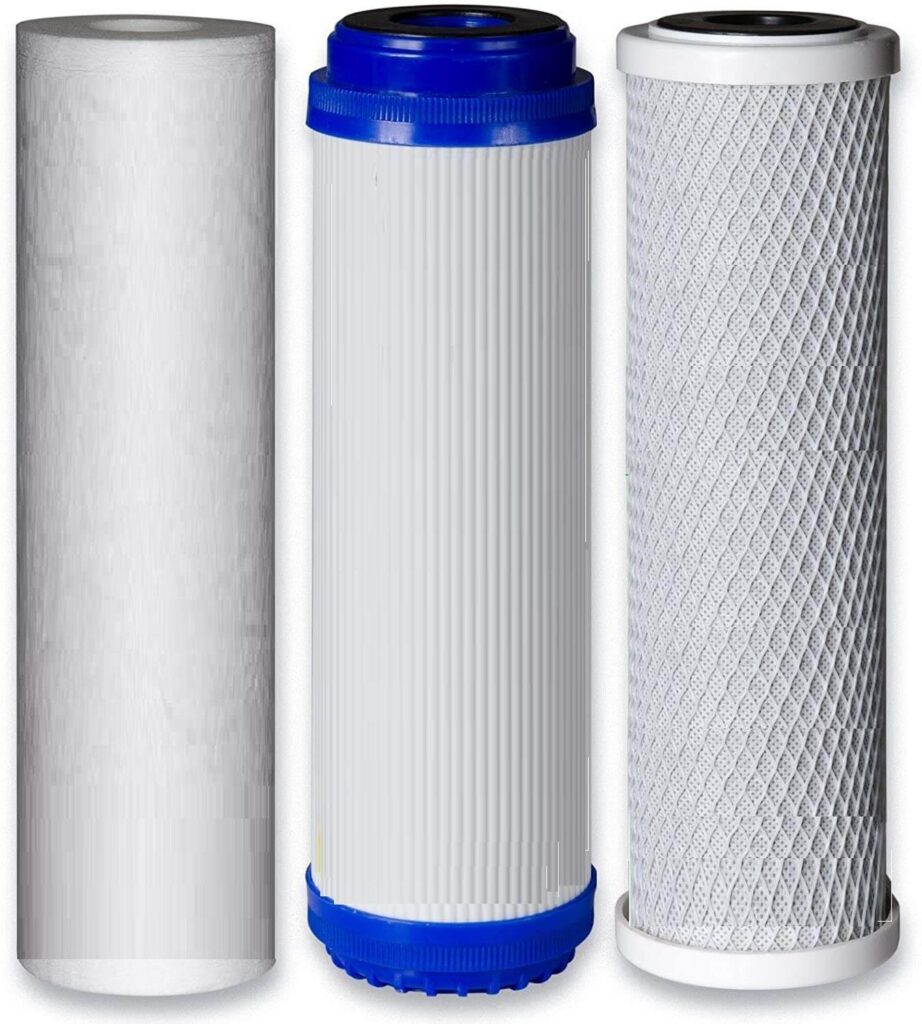
The quality of the activated carbon is also an important consideration. High-quality activated carbon will have a large surface area and a high degree of microporosity, which enhances its adsorption capacity. It will also be resistant to abrasion and have a long service life.
The specific contaminants present in your tap water will also influence your choice of activated carbon filter. If your water contains a high level of chlorine or organic compounds, a GAC filter may be sufficient. However, if your water contains a wide range of contaminants, including metals and VOCs, a carbon block filter may be more suitable.
In the next section, we will discuss the installation options for activated carbon filters and how to choose the right one for your needs.
Installation Options: Point-of-Entry vs. Point-of-Use Filters
Depending on your specific needs, you can opt for either Point-of-Entry (POE) filters or Point-of-Use (POU) filters. Both types of systems have their unique advantages and are designed to cater to different water purification needs.
POE filters, also known as whole-house filters, are connected to your main water line and filter all the water that enters your home. This means that every water outlet in your home – from your kitchen faucet to your showerhead – will dispense filtered water. POE systems are particularly beneficial if your water supply contains a high level of sediment or if you want to improve the overall water quality in your home. They are typically installed in the basement or garage, and they require professional installation.
On the other hand, POU filters are installed at a specific fixture to treat water right where it’s needed. These systems are typically smaller and more affordable than POE systems. They can be installed under the sink in the bathroom or kitchen, attached to a specific faucet, or even integrated into a refrigerator or showerhead. POU filters are ideal if you’re primarily concerned about improving the taste and odor of your drinking water or if you want to remove specific contaminants.
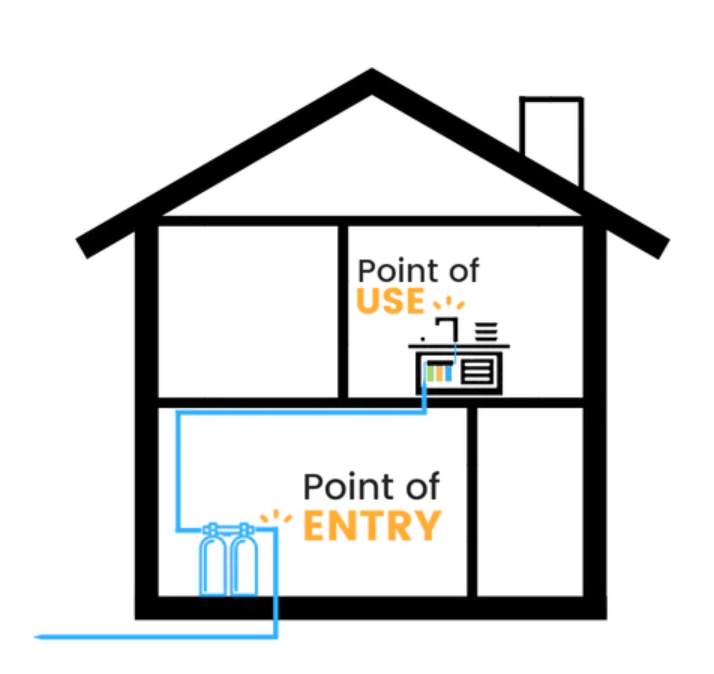
Both POE and POU systems have their advantages. POE systems provide comprehensive water treatment and can improve the water quality in your entire home. However, they are more expensive and require professional installation. POU systems, on the other hand, are more affordable and easier to install, but they only treat the water at a specific outlet.
When choosing between a POE and POU system, consider your specific water purification needs, your budget, and the practicality of installing a whole-house system in your home.
Conclusion: The Importance of Clean Water
Clean, safe water is not a luxury; it’s a necessity. With the increasing threat of water contamination, the importance of effective water purification systems like activated carbon filters cannot be overstated. They offer a reliable and efficient solution to ensure the safety and quality of your water, protecting your health and that of your loved ones.
Water is essential for life. It’s not just about quenching thirst or cooking food – water is involved in nearly every bodily function, from digestion and nutrient absorption to temperature regulation and detoxification. Therefore, ensuring the safety and quality of your water supply is one of the most important things you can do for your health.
Activated carbon filters offer an effective and affordable solution for improving water quality. They can remove a wide range of contaminants from water, including chlorine, organic compounds, metals, and VOCs. By removing these contaminants, activated carbon filters can improve the taste and odor of your water and make it safer to drink.
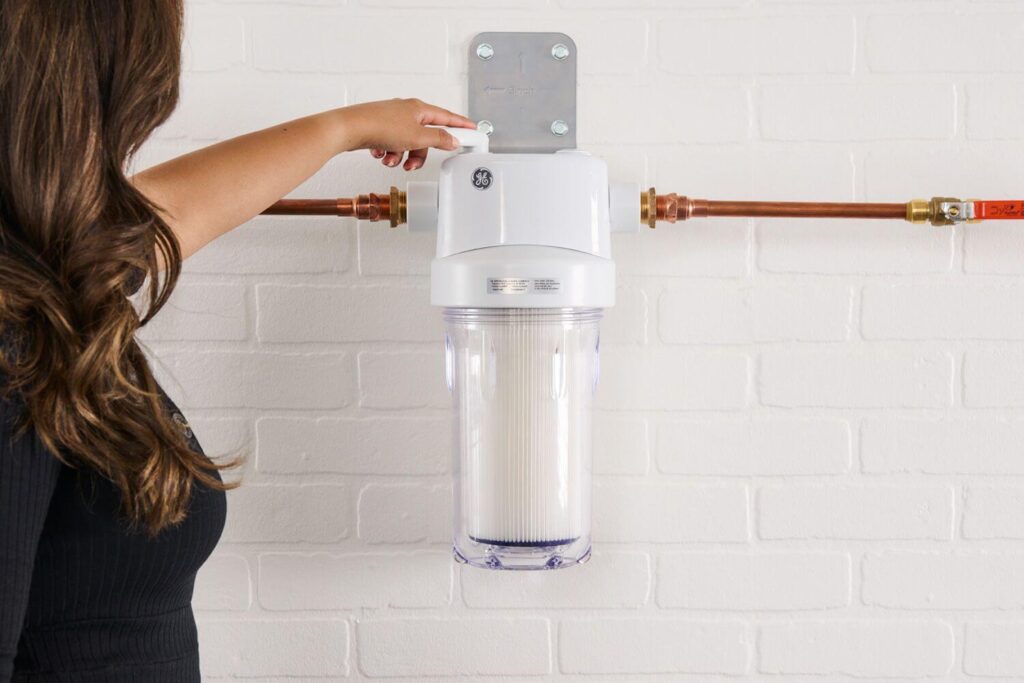
However, it’s important to remember that no single water treatment technology can remove all types of contaminants. Therefore, it’s often best to use a combination of treatment methods to ensure comprehensive water purification. For example, you might use a sediment filter to remove large particles from your water, an activated carbon filter to remove organic compounds and chlorine, and a reverse osmosis system to remove dissolved inorganic compounds.
In the end, the goal is to ensure that the water you and your family consume is clean, safe, and healthy. By understanding the different water treatment options available and choosing the right one for your needs, you can take a significant step towards achieving this goal.
Why choose us?
In a world where water safety is paramount, choosing the right water filtration solution is crucial. That’s where we come in. Located in China, we specialize in producing high-quality household water filtration products. Our range includes water purifiers, filters, and related accessories, all designed with one goal in mind – to provide you with clean, safe, and healthy water.

Here’s why you should choose us:
- Quality Assurance: As a B2B business with three production lines and a dedicated team of 35 employees, we are committed to maintaining the highest quality standards. We believe that quality is the foundation of long-term relationships with our customers, and we never compromise on it.
- Global Reach: Our products are exported to various countries around the world, including India, Vietnam, Mexico, and Germany. This global footprint is a testament to the trust and confidence that our customers place in us.
- Custom Solutions: We understand that every business has unique needs. Whether you’re a brand owner, a water industry professional, a kitchenware business, a wholesaler, or a distributor, we can provide you with reliable and cost-effective water filtration solutions tailored to your specific requirements.
- Competitive Pricing: While we never compromise on quality, we also understand the importance of cost-effectiveness. We offer competitive pricing, ensuring you get the best value for your investment.
- Excellent Customer Service: Our team is always ready to assist you, providing you with the information and support you need to make the best choice for your water filtration needs.
Contact us today to learn more about our products and services. We’re here to help you enhance your brand reputation with our top-notch water filtration solutions.
Remember, when it comes to water filtration, quality matters. Choose wisely, choose us for your water filtration needs.
